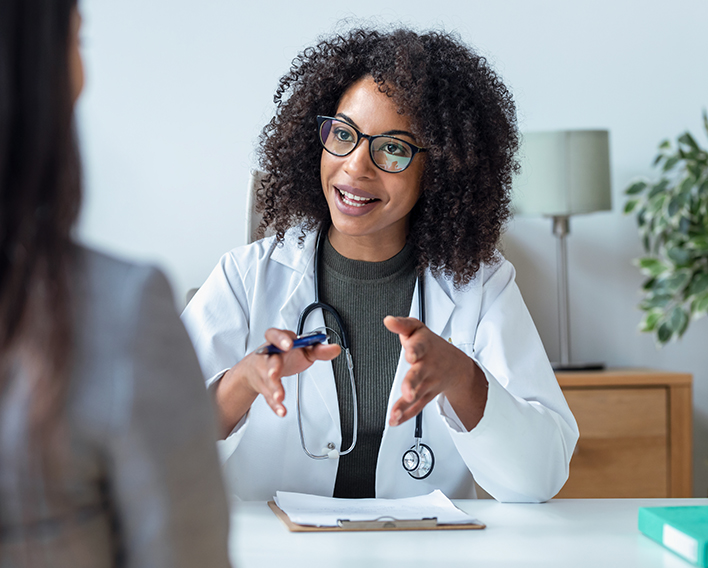Five reasons why you should follow up with your doctor after a hospital stay or ER visit
Produced by:


Is it normal to have follow-up with your doctor after a hospital stay or Emergency Room (ER) visit?
Yes, it is standard and recommended to have a follow-up appointment with your primary care doctor (PCP) after a hospital stay or ER visit. Your PCP is the one who is most familiar with your medical history and can help identify potential complications early on. Your PCP will review your records, monitor your condition, answer your questions, and ensure they can coordinate any ongoing care that may be necessary. In addition to the important health benefits, a follow-up appointment can help you save time and money.
Always make a follow-up appointment with your PCP within 5 days of going home from the hospital or ER.
Why follow up with your doctor after a hospital stay or ER visit?
- Your PCP needs to know what happened and why. There was a reason for the hospital or Emergency Room visit. Maybe you had a bad reaction to a new medicine. Or maybe you started a new meal or exercise plan. Your doctor also needs to know what happened in the hospital.
- It’s an excellent way to see what you need to do next. You’ll need to follow your doctor’s directions carefully once you leave the hospital. If you have a question about your follow-up care, call your doctor’s office. If you’re worried, reach out with questions. This can help stop problems from getting worse.
- You’ll go over any medicine changes. You may get new or extra medicines when you’re released from the hospital. Some of them may need to be watched carefully for your safety. Like blood thinners. Be sure to bring any new medicine bottles to your follow-up appointment. Your doctor needs to go over the list of current medicines you’re taking. They’ll make sure the list is complete and you’re taking the right amount. That’s called medication reconciliation.
- You’ll get a checkup to see how you’re doing. Your doctor will make sure you don’t have any new problems. You may be asked to get more blood work. Your doctor will also check on your vital signs, like blood pressure and how well you’re breathing. People with diabetes will have their blood sugar checked. If you had a bleeding problem, your doctor will check if your blood counts are stable.
- It’s focused time just for you and your doctor. You can talk to your doctor about anything else or ask questions. Especially if it’s been a while since your last appointment.
What should I do before my follow-up visit?
Make sure to ask the hospital or ER team when they’ll reach out to your PCP about:
- The care you got in the hospital
- Your current care needs Your doctor needs this information before your first follow-up visit. That way they can give you the care you need.
You should make an appointment or call for an appointment within 5 days of being seen in the hospital or ER.
What should I expect at my follow-up visit?
Be sure to keep all your follow-up appointments. When you go:
- Be ready to tell your doctor about how you’ve been feeling.
- Bring copies of any test results.
- Ask questions about any part of your recovery or care.
- Let your doctor know about any care steps you’re taking. During your hospital stay, you may have been given steps to follow. Like weighing yourself every day. Or exercises to speed your recovery. Be sure to let your doctor know about these things.
What else should I do?
Let family or friends be a part of your recovery. They may be able to help you by:
- Picking up medicine
- Taking you to appointments
- Remembering things you forgot, like:
- Symptoms
- Problems
- What questions to ask
They can help you have a smoother recovery after you’re released from the hospital.
Understanding diabetes: types, risks and strategies for prevention & management
November is National Diabetes Awareness month and a good time to learn about diabetes. Let’s talk about the different types, who is at risk to get diabetes, and how to help prevent and manage diabetes.
Read article5 tips for your health during a natural disaster
You can’t prevent natural disasters. But you can take action to stay safe during them. Here’s how to prepare.
Read articleShould I get tested for breast cancer genes?
Mutations to certain genes, such as BRCA, can increase your odds of getting breast cancer.
Read article7 signs you have a good doctor
Your primary care provider is typically the first stop on your way to better health. Make sure they’re the right fit for you by looking for these seven important traits.
Read article